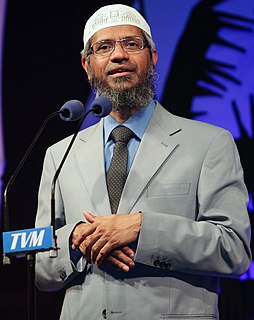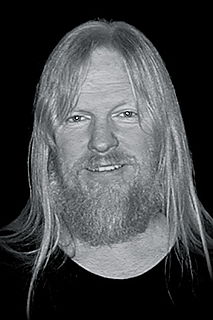A Quote by Wolfgang Schauble
During the centuries-long process of Reformation and Enlightenment, Christian churches had to accept some things they didn't like. Islam will have to do the same; otherwise it isn't part of Europe.
Related Quotes
There was this famous clash of civilization thesis from Samuel Huntington, a political theorist. And the idea was that Western civilization is at war with Islam and maybe some of the other civilizations around the world. And I don't agree with that. But I do think there is such a thing as Western civilization. I think it starts with the Greeks and the Romans. Then it goes through the Enlightenment - or the Reformation, the Enlightenment. It goes through the scientific age. And it somewhat defines some of the cultures and mores of Europe and North America and some other countries.
Let us assume that the Turks in whose ranks Europeans were fighting as well, even in high positions, would have conquered Vienna and Europe in 1683 instead of having been forced to withdraw. If the Mohammedans would have gained the victory at the time and Islam would have swept victoriously over Europe, then the Christian churches would have been depoliticized. (...) For the Turks were religiously tolerant, they allowed each religion to continue to exist, provided it was no longer involved in politics - otherwise it was finished.
The processes of secularization that followed in the wake of the Reformation continue to work themselves out in complicated ways, not only in Europe but also in North America. To make a very long and complex story short, the success of the Reformation combined with the persistence and renewal of Roman Catholicism in the 16th and 17th centuries made Christianity into an enduring, disruptive problem in new ways, layered on top of problems that already affected late medieval Christianity.
That the zeal for God's honor is also a dangerous passion, that the Christian must bring with him the courage to swim against the tide instead of with it... accept a good deal of loneliness, will perhaps be nowhere so clear and palpable as in the church, where he would so much like things to be different. Yet he cannot and he will not refuse to take this risk and pay this price... he belongs where the reformation of the church is underway or will again be underway.
As far as the matters of religion are concerned we know for sure that only Islam is the true religion in the eyes of God. In 3:85 it is mentioned that God will never accept any religion other than Islam. As far as the building of churches or temples is concerned, how can we allow this when their religion is wrong? And when worship is also wrong? Thus we will surely not allow such wrong things in our country.
Some European countries insist on saying that during World War II, Hitler burned millions of Jews and put them in concentration camps. Any historian, commentator or scientist who doubts that is taken to prison or gets condemned. Although we don't accept this claim, if we suppose it is true... If the Europeans are honest they should give some of their provinces in Europe - like in Germany, Austria or other countries - to the Zionists and the Zionists can establish their state in Europe. You offer part of Europe and we will support it.
Enlightenment means literally aligning to the Energy of my Source. And genius is only about focusing. Law of Attraction takes care of everything else. Physical humans often want to make enlightenment about finding some process and moving through the process that has been pre-described. But true enlightenment is moving to the rhythm of the internal inspiration that is coming in response to the individual desire. Enlightenment is about allowing my Connection to the Source that is me for the fulfillment of the things that I have individually defined here in my time-space-reality.
In Europe, the Enlightenment of the 18th century was seen as a battle against the desire of the Church to limit intellectual freedom, a battle against the Inquisition, a battle against religious censorship. And the victory of the Enlightenment in Europe was seen as pushing religion away from the center of power. In America, at the same time, the Enlightenment meant coming to a country where people were not going to persecute you by reason of your religion. So it meant a liberation into religion. In Europe, it was liberation out of religion.
In the process of burning out these confusions, we discover enlightenment. If the process were otherwise, the awakened state of mind would be a product dependent upon cause and effect and therefore liable to dissolution. Anything which is created must, sooner or later, die. If enlightenment were created in such a way, there would always be a possibility of ego reasserting itself, causing a return to the confused state. Enlightenment is permanent because we have not produced it; we have merely discovered it.
Will not perhaps the temporal power of Islam return and with it the menace of an armed Mohammedan world, which will shake off the domination of Europeans - still nominally Christian - and reappear as the prime enemy of our civilization? The future always comes as a surprise, but political wisdom consists in attempting at least some partial judgment of what that surprise may be. And for my part I cannot but believe that a main unexpected thing of the future is the return of Islam.
I look forward to the time when the churches come to celebrate and honour the work of animal protection as an imperative arising from their belief in the Creator and in the gospel of the crucified. After all, similarly remarkable things have happened, for example, the growing consensus among churches that the environment should be cared for and protected as a Christian duty--an astonishing turnaround when one considers the prevailing dualism in previous centuries, which expressly discouraged concern for "earthly" matters as distinct from "spiritual" ones.
The Protestant reformation was an attempt to recast the Christian faith in terms of the new learning of the 16th century, the enlightenment learning. It was the first time that the Christian church did not have the capacity to keep itself unified as it recast itself, so it split into Protestant and Catholic traditions.
Henceforward the Christian Churches having a form of godliness, but denying the power thereof, came into the hands of the Encratites: and the Heathens, who in the fourth century came over in great numbers to the Christians, embraced more readily this sort of Christianity, as having a greater affinity with their old superstitions, than that of the sincere Christians; who by the lamps of the seven Churches of Asia, and not by the lamps of the Monasteries, had illuminated the Church Catholic during the three first centuries.

































